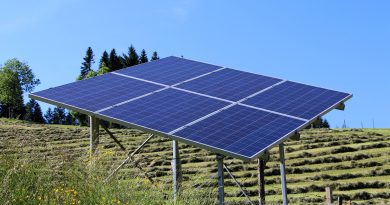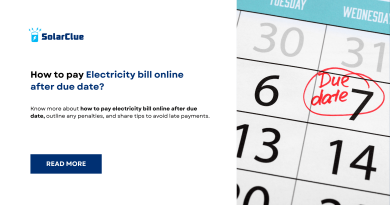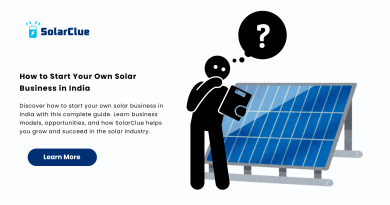Are solar panels safe?
Solar panels are a widely adopted and efficient way to harness renewable energy, but like any electrical system, they come with safety considerations. Understanding the materials used in solar panels, the electrical risks involved, and the importance of proper installation and maintenance can help ensure a safe and efficient solar energy system. This guide covers the safety aspects of solar panels, including potential health hazards, safety standards, and tips for a safe installation.
Table of Contents
- 1 The Materials Used in Solar Panels and Their Safety
- 2 Electrical Safety Considerations for Solar Panel Systems
- 3 Government Regulations and Safety Standards
- 4 Addressing Common Misconceptions About Solar Panel Safety
- 5 The Future of Solar Panel Technology and Its Commitment to Safety
- 6 Case Studies of Solar Panel Safety Incidents and Their Prevention
- 7 Tips for Ensuring a Safe Solar Panel Installation
- 8 The Impact of Solar Panels on Health and Well-Being
- 9 The Role of Insurance in Protecting Against Solar Panel Accidents
- 10 Table: Key Safety Considerations for Solar Panel Systems
- 11 FAQ Section
- 12 Conclusion
The Materials Used in Solar Panels and Their Safety
Common Materials in Solar Panels
1. Photovoltaic (PV) Cells:
- Material: The most common material used in PV cells is silicon, which is a stable and non-toxic element.
- Safety: Silicon itself poses no health risk, but care must be taken during the manufacturing process, as dust or fumes from silicon processing can be hazardous to workers.
2. Tempered Glass:
- Material: The front layer of a solar panel is typically made of tempered glass, which is durable and designed to withstand environmental impacts.
- Safety: Tempered glass is safe and shatter-resistant, minimizing the risk of injury from breakage.
3. Encapsulation Materials:
- Material: Ethylene-vinyl acetate (EVA) is commonly used to encapsulate PV cells, protecting them from moisture and mechanical damage.
- Safety: EVA is stable and safe under normal operating conditions, but it can release acetic acid and other compounds if the panel is damaged or improperly disposed of.
4. Aluminum Frames:
- Material: Solar panels are often framed in anodized aluminum, which provides structural support and is resistant to corrosion.
- Safety: Aluminum is non-toxic and safe, but sharp edges on the frames can pose a minor risk during installation.
5. Backsheet Materials:
- Material: The backsheet, usually made of polymer materials like polyvinyl fluoride (PVF), protects the panel’s internal components.
- Safety: These materials are generally safe, but they can degrade over time, especially under harsh environmental conditions, potentially exposing electrical components.
Potential Health Hazards
Manufacturing Process:
- Exposure Risks: Workers in the manufacturing process may be exposed to hazardous chemicals, including lead, cadmium, and tellurium, depending on the type of panel.
- Mitigation: Modern manufacturing processes and safety regulations significantly reduce these risks, ensuring that the end product is safe for consumers.
End-of-Life Disposal:
- Toxic Elements: Some older or specialized solar panels, such as cadmium telluride (CdTe) panels, contain toxic materials that require careful disposal.
- Recycling: Proper recycling of solar panels can mitigate environmental and health risks associated with disposal.
Electrical Safety Considerations for Solar Panel Systems
Electrical Risks
High Voltage:
- Risk: Solar panels generate direct current (DC) electricity, which can reach high voltages, especially in large installations. This poses a risk of electric shock.
- Mitigation: Proper installation, grounding, and the use of inverters to convert DC to alternating current (AC) reduce these risks.
Arc Faults:
- Risk: Faulty wiring or damaged components can lead to arc faults, which are high-power discharges that can cause fires.
- Mitigation: Use of arc fault circuit interrupters (AFCIs) and regular system inspections can prevent arc faults.
Battery Storage:
- Risk: Systems with battery storage add another layer of electrical risk, including the potential for thermal runaway (overheating) in lithium-ion batteries.
- Mitigation: Proper ventilation, monitoring systems, and adherence to manufacturer guidelines are essential for safe battery operation.
Importance of Proper Installation and Maintenance
Certified Installers:
- Role: Using certified and experienced installers ensures that the solar system is set up correctly, minimizing risks of electrical hazards.
- Standards: Installers should follow national and international safety standards, such as those outlined by the International Electrotechnical Commission (IEC) and the National Electrical Code (NEC).
Regular Maintenance:
- Inspections: Regular inspections can identify and address issues like loose connections, corrosion, or shading that might affect performance or safety.
- Cleaning: Keeping the panels clean and free from debris reduces the risk of hotspots and fire hazards.
Government Regulations and Safety Standards
Key Regulations
IEC Standards:
- Description: The International Electrotechnical Commission provides global standards for solar panel safety, including guidelines for electrical installation, fire safety, and performance testing.
- Compliance: Ensure that your solar panels meet IEC standards for safety and quality.
National Electrical Code (NEC):
- Description: In the United States, the NEC provides detailed guidelines for electrical installations, including solar power systems.
- Compliance: Solar panel installations must comply with the NEC to ensure they are safe and up to code.
Government Incentives:
- Safety Requirements: Many government incentives for solar installation require compliance with specific safety standards, ensuring that systems are both efficient and safe.
Addressing Common Misconceptions About Solar Panel Safety
Myth 1: Solar Panels Are Prone to Causing Fires:
- Reality: While electrical faults can lead to fires, these risks are minimal when panels are installed correctly and maintained regularly. Using proper wiring, breakers, and AFCIs can significantly reduce fire risks.
Myth 2: Solar Panels Emit Harmful Radiation:
- Reality: Solar panels do not emit harmful radiation. They generate electricity through the photovoltaic effect, which involves the movement of electrons within a semiconductor material, not the emission of radiation.
Myth 3: Solar Panels Are Dangerous During Rain:
- Reality: Solar panels are designed to be waterproof and can safely operate in the rain. Proper installation ensures that electrical connections are sealed and protected from moisture.
The Future of Solar Panel Technology and Its Commitment to Safety
Advancements in Materials
Non-Toxic Alternatives:
- Development: Researchers are working on developing solar panels that use non-toxic, sustainable materials, reducing the environmental impact and enhancing safety.
Durability:
- Improvement: New materials and technologies are making solar panels more durable and resistant to environmental factors, further reducing the risk of damage and associated safety concerns.
Enhanced Safety Features
Smart Inverters:
- Function: Modern inverters come with advanced safety features like real-time monitoring, automatic shutdown in case of faults, and arc fault detection.
Integrated Monitoring Systems:
- Benefit: Integrated monitoring systems provide real-time data on system performance and safety, allowing for immediate detection of issues like electrical faults or overheating.
Case Studies of Solar Panel Safety Incidents and Their Prevention
Case Study 1: Prevention of Arc Faults in a Commercial Installation:
- Scenario: A commercial solar installation in California experienced a series of arc faults due to poor-quality connectors.
- Solution: Upgrading to high-quality connectors and implementing AFCIs reduced the risk of future faults and improved overall system safety.
Case Study 2: Safe Handling of Solar Panels with Toxic Elements:
- Scenario: A solar farm using cadmium telluride (CdTe) panels in Germany faced challenges in panel disposal.
- Solution: The panels were recycled through a specialized program that safely handled and disposed of toxic materials, mitigating environmental and health risks.
Tips for Ensuring a Safe Solar Panel Installation
1. Hire Certified Professionals:
- Importance: Certified installers follow industry best practices and safety standards, ensuring that your system is safe and efficient.
- Verification: Verify the credentials of your installer and ensure they comply with local regulations and standards.
2. Use Quality Components:
- Selection: Choose solar panels, inverters, and other components from reputable manufacturers that comply with IEC and NEC standards.
- Longevity: High-quality components are less likely to fail and will provide longer-lasting, safer performance.
3. Conduct Regular Inspections:
- Routine Checks: Schedule regular inspections to check for signs of wear, damage, or electrical faults.
- Monitoring: Use monitoring systems to track the performance and safety of your solar power system.
4. Implement Safety Features:
- AFCIs and Breakers: Ensure your system includes arc fault circuit interrupters, breakers, and surge protection devices.
- Grounding: Properly ground your system to prevent electrical shocks and enhance overall safety.
The Impact of Solar Panels on Health and Well-Being
Positive Impacts
Reduced Air Pollution:
- Benefit: Solar energy reduces reliance on fossil fuels, leading to lower air pollution levels and associated health benefits, such as reduced respiratory issues.
Lower Energy Costs:
- Benefit: Reduced energy costs from solar power can contribute to lower stress levels and improved financial well-being for homeowners.
Minimal Health Risks
Electromagnetic Fields (EMFs):
- Clarification: The EMFs generated by solar panels are extremely low and pose no known health risks. The energy generated is purely electrical, not radiative.
The Role of Insurance in Protecting Against Solar Panel Accidents
Insurance Coverage
Homeowner’s Insurance:
- Inclusion: Most homeowner’s insurance policies cover solar panels as part of the property, protecting against damage from events like storms, fire, and vandalism.
- Verification: It’s important to verify with your insurer that your solar panels are covered and understand the extent of that coverage.
Specialized Solar Insurance:
- Additional Coverage: For commercial installations or more comprehensive coverage, specialized solar insurance policies are available. These can cover specific risks like performance degradation or business interruption due to system failure.
Claims Process
Documenting Damage:
- Steps: In the event of damage, document the incident thoroughly with photos and detailed descriptions. Contact your installer and insurance provider immediately.
- Repair or Replacement: Work with certified professionals for any repairs or replacements to ensure that the system remains safe and compliant with regulations.
Table: Key Safety Considerations for Solar Panel Systems
| Safety Consideration | Impact on Overall Safety |
|---|---|
| Material Selection | Choosing non-toxic, durable materials minimizes health and environmental risks. |
| Proper Installation | Professional installation ensures compliance with safety standards and reduces electrical hazards. |
| Regular Maintenance | Inspections and maintenance prevent electrical faults and system failures. |
| Advanced Safety Features | AFCIs, breakers, and monitoring systems enhance safety by preventing faults and allowing quick response. |
| Compliance with Regulations | Adherence to IEC, NEC, and local standards ensures the system is safe and reliable. |
FAQ Section
1. Are solar panels safe to have on my home?
Yes, solar panels are safe when properly installed and maintained. They are designed to withstand environmental conditions and pose minimal risk to homeowners.
2. Can solar panels catch fire?
While the risk of fire exists, it is extremely low when panels are installed correctly and maintained regularly. Using quality components and incorporating safety features like AFCIs can further reduce this risk.
3. What happens if my solar panel gets damaged?
If a panel is damaged, it’s important to contact your installer and insurance provider. Many solar panels come with warranties that may cover repairs or replacements.
4. Do solar panels emit harmful radiation?
No, solar panels do not emit harmful radiation. They generate electricity through the photovoltaic effect, which does not involve radiation.
5. Are there any toxic materials in solar panels?
Most modern solar panels are made from non-toxic materials like silicon. However, some older panels may contain small amounts of toxic elements, which require careful disposal or recycling.
Conclusion
Solar panels are a safe, reliable, and sustainable energy solution when properly installed and maintained. Understanding the materials used in their construction, the electrical safety considerations, and the importance of adhering to safety standards can help ensure that your solar system operates efficiently and safely. By staying informed and following best practices, you can enjoy the benefits of solar energy with peace of mind.



